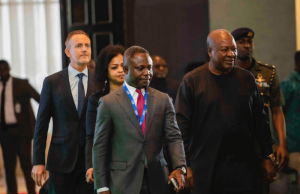“It’s very clear that China has entered a new era under President Xi Jinping,” said Mushahid Hussain Sayed, former chairman of Pakistan’s Senate Defense Committee.
Mushahid Sayed is the host of the “Global South Voices” show on China’s Global Television Network (CGTN).
“Reform is the hallmark of this new era and President Xi Jinping is the helmsman of reform, spearheading China’s development, modernization and reform in the 21st century,” he said.
The fifth episode of the show focuses on the just-concluded third plenary session of the Communist Party of China (CPC) 20th Central Committee.
Guests analyse the key takeaways from this meeting, how China’s reform benefits the world as well as the misunderstandings towards China’s reform process.
Masood Khalid, former Ambassador of Pakistan to China, focused on the key points of the recent plenary session, particularly China’s path of reform and its people-centered approach.
He stated: “If you look at China’s progress, it is incremental and definite. It has achieved what can be described as the transformation of China over the last 40 years and the transformation of the world’s economy.”
“This plenum was important. I think the most interesting thing I found was the emphasis on the word ‘reform,’ particularly the deepening of reforms.”
“The word ‘reform’ has been used countless times in this document.”
“This shows the clarity of the Chinese leadership in terms of the future trajectory that China wants to follow, and the clear timelines provided, aiming for a high-standard socialist market economy by 2035.”
Jack Perry, chairman of the 48 Group Club in the UK, has deep ties with China.
His grandfather, also named Jack Perry, is renowned as the “Icebreaker” of Sino-British relations.
In 1953, Jack Perry, then chairman of the London Export Corporation, led a group of British businesspeople to break the Western world’s blockade of the newly established People’s Republic of China.
Overcoming numerous obstacles, they initiated trade exchanges with China.
The following year, 48 British companies aspiring to engage in trade with China founded the “48 Group of British Traders with China,” which was renamed the “48 Group Club” in 1991.
Growing up immersed in this environment, Perry recognised that China’s uniqueness lies in its ability to “say what it means and do what it says.”
When China sets a plan, it follows through with determination and achieves results.
In his view, China possesses a vision that extends “beyond the next 30 years.”
As a business representative, he sees great potential in collaborating with Chinese enterprises.
In the past, the West’s arrogance led to many missed opportunities.
However, China has now caught up, leading the way in many fields such as infrastructure and biopharmaceuticals, and has genuinely contributed to the development of Western countries.
Therefore, he urges Western companies to pay more attention to China’s reforms and innovations, as this will be mutually beneficial.
Actually, to the Global South countries, the fruits of China’s reform are not confined to China but shared by all.
Gerald Mbanda, founder of Africa China Review, said China’s development depended on itself, not plunder and occupation.
He gave the example that during the COVID-19 pandemic, China was the first country to provide vaccines to China. On the other hand, he said bluntly: “I see that China is pursuing high-quality development, but with human face and a human heart.”
As China’s international influence grows, its image continues to be misunderstood by the international community.
The international environment of China’s reform and opening up has also undergone major changes as China’s economic size has grown and its voice has increased.
Some countries have misunderstood and prejudiced China’s reform and development, and even deliberately smeared it.
On the United States (US) China strategy, Victor Gao, Vice President of the Centre for China and Globalisation (CCG), believes that the US is suffering from the “Tonya Harding Syndrome.”
Tonya Harding is a figure skating champion. She does not want to see Nancy Kerrigan taking her place.
So, her associates knocked or whacked the kneecap of Nancy Kerrigan, putting her out of competition.
The US currently seems to be exactly employing this kind of “any means necessary” approach in its strategy towards China.
But it is impossible for the US to wipe out China in global competition.
Instead, “China is the mega-trend. China is here to stay. China is committed to peace and stability and working with all countries as equals.”
By Alexander Ayertey Odonkor
Source: GNA
















